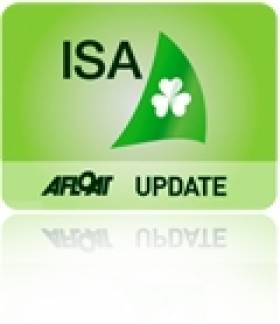Displaying items by tag: small boat forum
Big Task Ahead for Small Boat Forum as Data Shows 'Sport on its Knees'
#smallboatforum – In anticipation of the small boat forum to be hosted next Saturday morning in the National Yacht Club, Roger Bannon has tried to gather some information over the last 2 years on attendance at class championships for dinghies and small keelboats.
In Ireland we have about 20 recognised small boat and dinghy classes made up of single handed, 2 handed and 3 handed boats.
Based on the data I looked at, approximately 700 boats participated in a National Championships with an average of 1,300 Irish competitors involved in 2012 and 2013.
The statistics make interesting reading;
33% were single handed boats
45% were two handed boats
22% were three handed keel boats and large dinghies.
The number of active participants was split as follows:
Single handed 18%
Two handed 47%
Three handed 35%
Assuming that most participants in singlehanded classes such as the Oppy, Topper and Laser Radial and 2 handed classes such as the Feva and Mirror are under 23 years of age, this group together with a few who were involved in other classes, made up about 40% of the total individuals involved.
The active pool of remaining older competitive sailors involved in small keel boats and dinghies is less than 800 individuals! Nearly 500 of them raced in Mermaids, SB20s Shannon One Designs, Squibs, National 18s and Flying Fifteens with less than 300 people sailing other more performance oriented classes.
Clearly this is not indicative of the numbers involved in club and other recreational small boat sailing activities but it is a very stark analysis of the current competitive situation for so called prestige events!
The harsh reality in Ireland is that we probably have fewer adults racing small boats competitively in recognised championships all year than sail on any Thursday evening in Dublin Bay Sailing Club!
Even if the figures are wrong by 50% the message remains materially the same. With exception of a small number of established classes, competitive small boat sailing in Ireland is clearly on its knees.
How can we reasonably expect to produce world class sailors from this modest environment?
The scope of the challenge is awesome!






























































